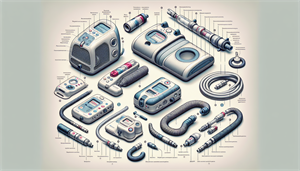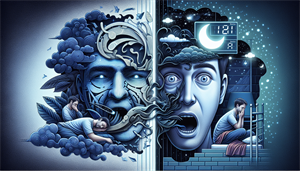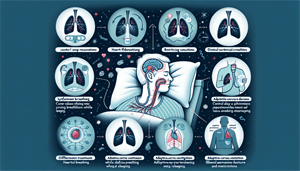
Understanding Sleep Apnea Devices
Obstructive sleep apnea is a common yet potentially serious sleep disorder that interrupts your breathing during sleep. The consequences can range from daytime fatigue and morning headaches to more severe health problems like heart disease. Fortunately, a variety of sleep apnea devices have been designed to manage this condition effectively.
Key Takeaways
Positive Airway Pressure (PAP) machines, including CPAP, BiPAP, and APAP, are central to sleep apnea treatment, differing in pressure delivery to cater to individual patient needs. Oral appliances like mandibular advancement devices and tongue stabilizing devices offer alternatives to PAP machines, usually requiring custom fitting to ensure effectiveness. Complementing device usage with lifestyle changes such as weight loss, avoiding alcohol, and regular exercise can enhance management of sleep apnea symptoms.
Exploring PAP Therapy Options
Positive Airway Pressure (PAP) machines have been found to be highly effective in treating sleep apnea. They work by delivering pressurized air into the airways, keeping them open during sleep and preventing apnea episodes. These machines come in different variations, each designed to cater to specific patient needs.
Understanding CPAP Machines
CPAP machines are widely used for managing sleep apnea. Many people find them to be an effective solution for improving their quality of sleep. They work by drawing in room air, filtering it, pressurizing it, and delivering it to the user through a tube and mask. This continuous stream of air pressure keeps the airway open during sleep, preventing apnea episodes and improving the quality of sleep.
The Benefits of BiPAP Machines
BiPAP machines represent an alternative PAP machine type for managing sleep apnea. Unlike CPAP machines that deliver a constant stream of air pressure, BiPAP machines provide two levels of air pressure: a higher level for inhalation and a lower level for exhalation. This dual pressure system can be more comfortable for patients, particularly those who have difficulty tolerating high CPAP pressures. As such, BiPAP machines may be a more suitable option for individuals with severe sleep apnea.


